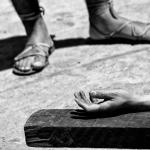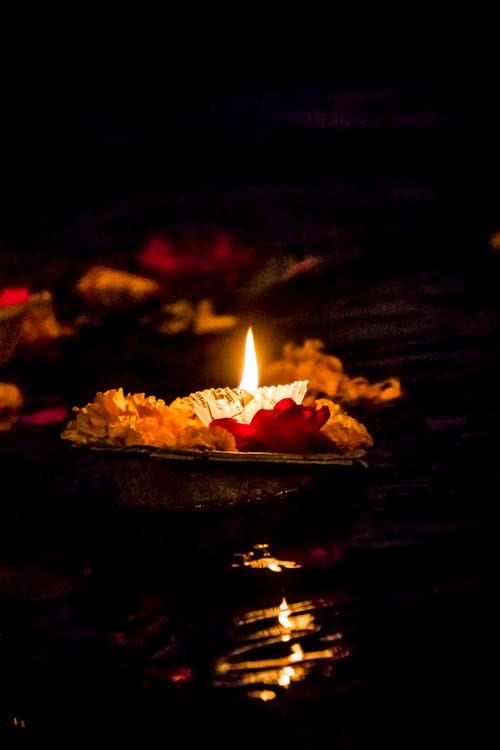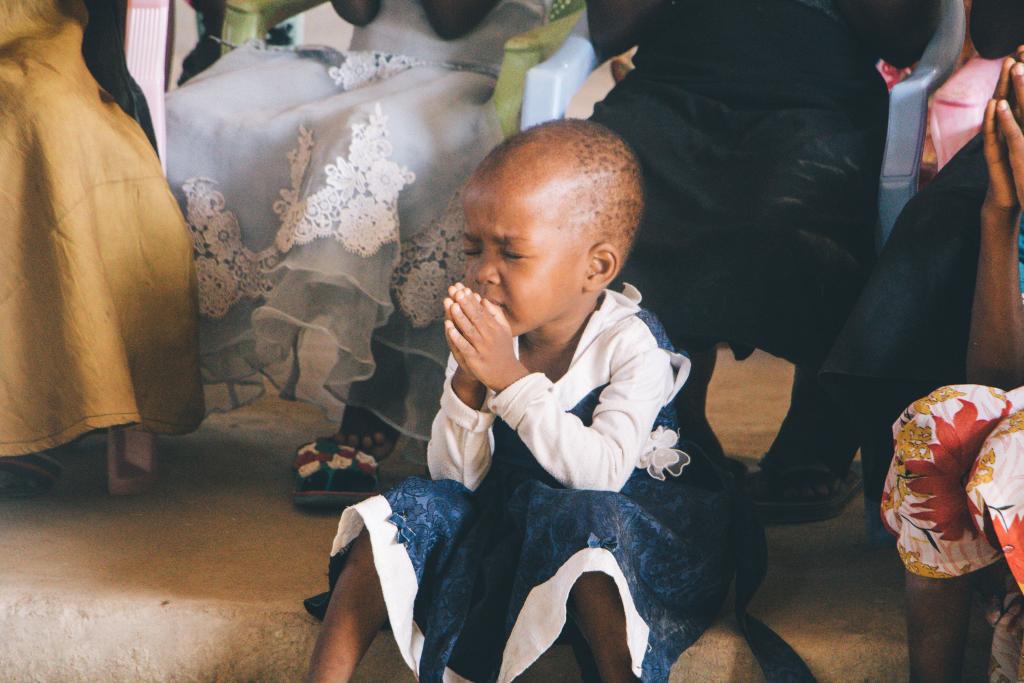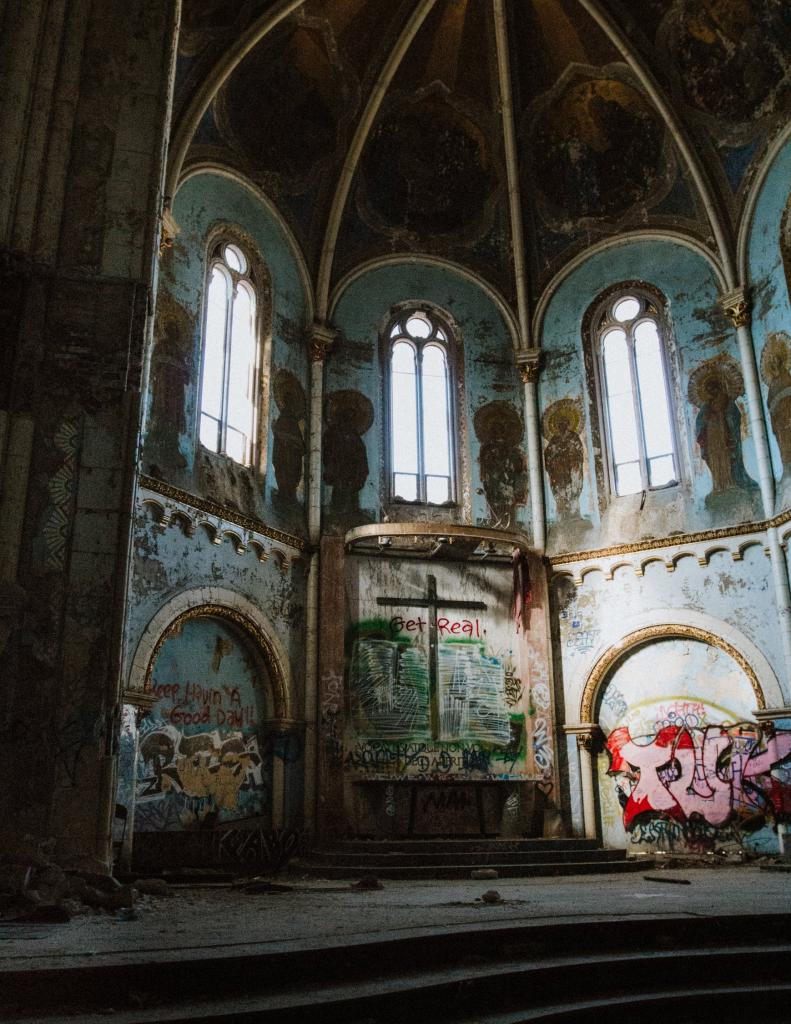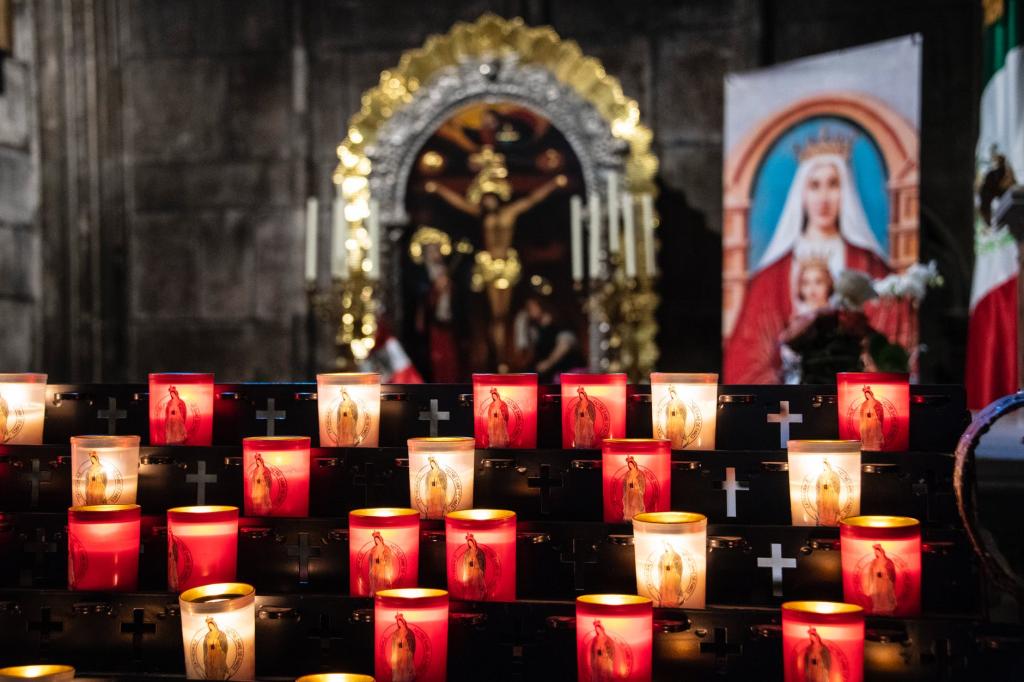
This is part three of our series “Why millennials are leaving the Church—and why we aren’t.” You can find parts one and two here:
Why millennials are leaving the Church—and why we aren’t
Spite. And a cat. (Why millennials are leaving the Church—and why we aren’t: Part 2)
I’ve been deeply humbled, saddened, and grateful to my friends for their raw honesty as their responses to my question—“Why did you decide to leave the Church, or why did you decide to stay?”—have continued to trickle in. Their stories make me uncomfortable (actually, they make me ache), and I expect they’ll make my readers uncomfortable, too. Which is why I’m choosing to publish them uncensored. These are the words and stories of individuals, incredible, gifted, loving and compassionate persons, who have been hurt by our Church. And we need to listen. We owe them that.
-Marie Kopp
Matt Lefleur: Being Catholic is a foundational part of my culture.
So there’s no real escaping it for me. My innate sense of morality rooted itself in the enveloping Catholic-ness of my childhood. I didn’t bother questioning that abortion was the ultimate evil, being gay was an unspeakable choice people made, God was the ever-present yet ever-out-of-reach creator of the world, and his son who lived 2,000 years ago and died on behalf of all of us was physically present in the bland wafer and wine distributed weekly by a male-only order.
Around the time of puberty, my debilitating disorder began to appear. Since it is progressive, it made itself more obvious and more disabling as I grew older. It first appeared as obvious clumsiness. Yearning, as all kids do, to fit in with peers, I clung unshakably to Catholicism, where my disability did not make me weak, but heroic. As my body became more disabled, my belief in Catholicism became more unquestioned.
As a sound Catholic, I graduated high school as the Catholic student of the year, gave talks at retreats about enduring faith, became the president of the Catholic student center in college, and never missed going to Mass on Sunday. Conversely, my physical abilities waned: I used a wheelchair for the first time in college and in about three years, almost fulltime; I went from using a handle bar to a shower-chair in the bathtub; and even my voice went from being a poetic-sounding radio voice (or at least I was told) to a slurred and spastic mumble.
I’ve realized that for me, God’s presence is identical to God’s absence. Whether God is present is based on my own mindset, and on the people I surround myself with. My friends have always been of different faiths, and arguing religion leaves us nowhere but angrier. So instead of focusing on what a book says or what the church teaches, I’ll focus on choosing the option that seems closest to compassion and trying to be a good friend. The mysteries of God and the church are no longer focal points to me. I’m striving to make sure my presence does not feel like my absence. And maybe that’s enough.
Matt doesn’t really consider himself a practicing Catholic anymore but believes in genuineness and goodwill, so he still posts on a Catholic blog, Sick Pilgrim. At least until they kick him out. (He’s also one of the five best, most loving men I’ve ever met.)
Elizabeth Kelleher: At a recent men’s conference in Baton Rouge, Louisiana,
a priest’s homily recommended a solution to the dwindling numbers of practicing Catholics: men praying the rosary on their knees for their families to see. Scott Hahn encouraged fathers to be the spiritual heads of their families and to repent—a radical stance in contemporary thinking. These actions will bring Christ to the world, save our families, and reverse the effects of the sexual revolution.
I’m used to hearing these things. During my teen years, my parents hosted Bible studies and listened to the CDs from Lighthouse Catholic Media. My education was “Catholic-based” for years.
Now, I have essentially left the Catholic Church. My husband still goes to Mass so I still go. I teach at a Catholic school so I occasionally use my theological knowledge to tell the story of a saint or loosely explain a Church teaching. But I have essentially left the Catholic Church.
The reason has nothing to do with which style of worship a parish promotes. That’s surface level, image crap. It doesn’t have a whole lot to do with the sexual revolution. What ultimately repulsed me was the Church itself.
I heard a news story today involving Christian universities and Title IX funding, and it got me thinking about Christendom and Franciscan University and Scott Hahn and EWTN. All four have done and continue to do stupid things, but it’s cloaked in untouchable “Catholicism.” Catholics everywhere I go stake their souls on the word of Scott Hahn, take social cues from some asshole on EWTN, defend nutters because they’re Catholic. Catholics everywhere I turn support Catholic universities, figureheads, organizations, the Magisterium because “of all the good they are doing in the world, saving souls for Christ,” even when it turns out they are involved in something horrendously immoral.
“Yeah, that was bad, but the Church is more than that” —doesn’t cut it.
I’m disappointed that when I read the Bible, I find a lot of problematic verses and verses frequently misapplied to everyday life; and that no one ever recorded God telling the Israelites, for example, that a woman’s value isn’t dependent on her relationship with a man. I’m frustrated that Catholics draw lines in the sand and refuse to even treat LGBT people with the same courtesy as they would everyone else, yet permit sexual predators and wife beaters and racists to run wild within the leadership of the Church. Chauvinism and sexual power are manly sins, I guess, so it’s okay.
I’m frustrated that someone came up with the theory that sexual identity is intrinsic to a personal definition—that it encouraged Catholic gender roles and bigoted language—and that it seems to be the one thing biology can’t accidently screw up.
I’m frustrated that everything a prominent Catholic says is expected to be Church teaching, and no distinction is ever made between what is Catholicism and what is conjecture.
I’m frustrated that the parish I attend right now has 101 ways you can donate to fund the next festival, raffle night, or flower displays; that the parish hosts several Bible studies and faith groups divided by gender, marital status, and interest (food or yoga?); that the spiritual journeys of the RCIA candidates have nothing to do with God and everything to do with joining the cult that is the parish-school community; that becoming involved in a faith group usually involves guilt-tripping and spiritual manipulation.
I’m frustrated that the Church can’t hear me even though I’m screaming. Even though I’m leaving.
Maybe their retreats, conferences, pamphlets, CDs, books are looking at an older generation—a generation that hears and loves it. But the message is dead when it reaches my ears. What I hear is personal gratification. What I hear is, “What makes me feel superior can make you feel superior too!” What I hear is rational argument at the expense of reality. We’re trying so hard to make the message feel good and look cute that we’re not reaching hearts—at least, the trite prayers and prayer stones and meditations aren’t reaching my heart.
I don’t want to hear anything more about how Catholicism makes sense. It doesn’t make sense. Don’t try to make that sound okay. Catholicism has fucked up so many times and has not done enough to expose its own sins. I seriously doubt the place of the Magisterium in the mission of Christ’s kingdom—daily. It’s like a spouse that tries to hide his past infidelity, while considering another trip to town.
The next homily may be my last. So I’ll tell you what renews me spiritually. Nature… and gardening is what gets me through. Gardening reminds me that work never ceases, yet there are times for sweating and times for reflection. It teaches me that sometimes the thing to do is live and let live—to wait and see, that a weed may be a beautiful flower. It teaches me that I will make mistakes, but life will go on. The destruction of one thing may surprise you with the emergence of something else. It doesn’t matter if I’m planting something new or just tending to the old. In my garden, it doesn’t matter what I’ve done. It’s just me and dirt. It’s an opportunity to try again.
Not everyone can be a gardener, but it’s kind of like my yoga or meditation or sacrament. It’s my saving grace.
Elizabeth is a rambler and a nature lover. She currently lives in the deep south, teaches in a Catholic high school, and attempts to find God.
Anonymous: As a disabled trans man, I have experienced a deeply harmful side of Catholicism firsthand,
mainly because the very nature and purpose of my existence as a human person is treated as a debate in which I am given no authority to participate in.
Put simply, there is currently no room in Catholicism for someone like me. Though in theory the eternal love and wisdom of God extends even to a man like me, I personally find a hard time participating in that love through the middleman of Catholicism—a middleman who, quite frankly, sees me through a bigoted lens.
I have faced incredible harassment and ostracizing for being disabled as well as being LGBT. I often felt forced to assimilate to behaviors and beliefs that were untrue to my own lifetime of experiences. Catholicism in its present state can be very demonizing, infantilizing, patronizing, and fetishizing of those who are disabled or part of the LGBT community. There was no room in the earthly government of Catholicism for me to define myself, or to explore my own perception of God, and rather it felt I’d have to surrender the understanding of my very identity to a group of authorities who know nothing of my experience. I’m an extremely empathetic person and have grown tired of always accommodating to other people and never having such luxuries afforded to me in return.
Every single day I feel this sting. It seems to be an impossible thing for many Catholics to grasp that disabled and trans people are just regular people trying to go about their day. We’re just trying to find a place in this world where we can be people. I think the fact that so many Catholics avoid interacting with and listening to disabled and trans people serves as the source of these straw men they’ve crafted of us in their minds. We’re tired of being simultaneously degraded and elevated, serving as both sinful rescue dogs and, to quote Stella Young, “inspiration porn.” Again, we are literally just trying to find a place in this world where we can be people—and right now, there’s no place for us to exist as full human people in Catholicism. Currently the Vatican is a government which refuses to grant many types of marginalized people representation, and if you’re a straight, white, cisgender, male, abled person in the Church, you may feel perfectly at home because it was designed for you and by you, and the harmfulness of this ideology doesn’t play into your daily life so violently. But for the rest of us, it’s dehumanizing.
If rigid Catholics truly were loving people believing in equality they would realize the compatibility of so many other belief systems in this world, rather than lazily wading in the artificial power rush they secretly enjoy from being so adamantly divisive.
I prefer to pursue a relationship with our loving Deity, who most certainly exists beyond all earthly expressions of gender, and, like Giordano Bruno, revel in the mysteries of science, creation, and exploration. I believe that each person, as long as they are causing no harm to others around them, should be granted the freedom to autonomously pursue their own understanding of God and the world around them, whether they elect to employ religion or not. Such exploration should be seen as the unique gift of insight each person brings into the world, rather than trying to commodify each person’s contributions into an easily consumable saint-book package. To me that is so inherently evil, to wipe away a person’s own eyes and replace them with mass-produced ones.
I trust that if Jesus is God and that I will encounter him upon my death, that he should welcome me happily, since he and I both stand against all oppressive authority which seeks to crush the individual soul.
Image Credit:
http://maxpixel.freegreatpicture.com/photo-536391


